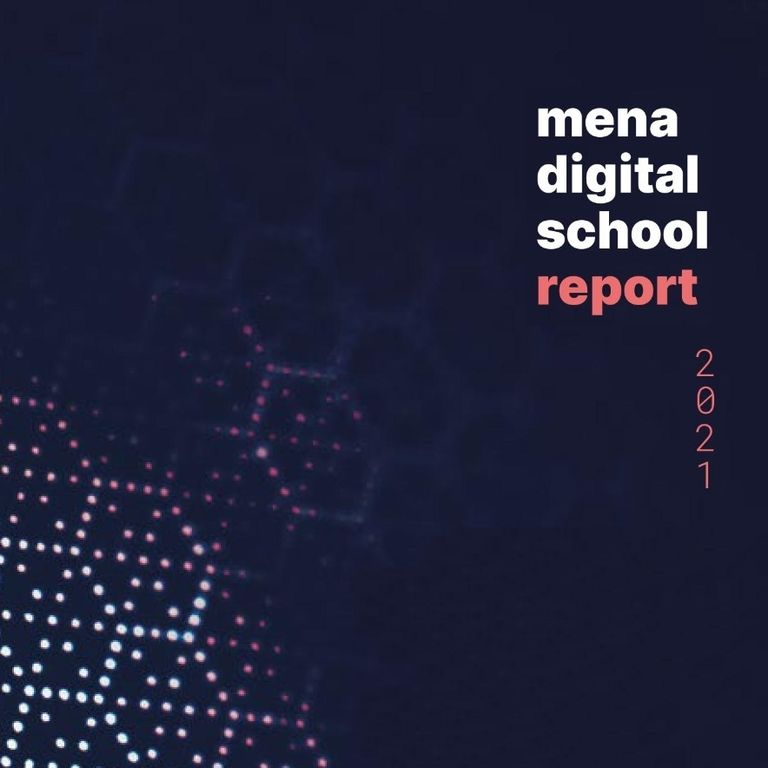Conclusions & Recommendations

Digitisation and Education
–> The dramatic change that the digital transformation entails will have a strong impact on the MENA region. Traditional industries will increasingly need to adopt automation, and the wage factor will become less important in the global economy. When new technology-based industries begin to thrive, they initially will not create enough new jobs to compensate for losses in the traditional sector.
–> While the younger generation is often assumed to learn necessary skills ‘by themselves’, resorting to an ever-increasing global offering of online learning content, the majority of the working population, including management and public sector decision-makers, are not being supported by adequate learning offerings.
–> While the Arab region is an attractive and substantial market for international learning offerings, foreign universities often do not translate their content into the MENA context. The MENA non-Gulf area is furthermore almost completely left out of the view of major Western prestige institutions.
–> Local new providers scrambling for the new market for digital economy content often cannot provide the necessary curriculum, while traditional institutions are slow to adapt.
–> Europe and the MENA region are neighbours – they are historically, economically and politically deeply intertwined. Many of the challenges posed by digitisation and dominant US and Chinese platforms are very similar for both. Thus, the benefits of a mutual exchange of experiences, solutions and policies are obvious and pressing. Used to leap-frogging and finding solutions in dire and difficult circumstances, Arab digital entrepreneurs can provide substantial solutions to this debate and to the development of learning contents and delivery models.
MENA DS — Content and Structure
–> Two main target groups have been identified: young graduates and upper management/ civil servants, each with distinctive attributes and requirements. However, synergies are possible and meaningful, such as master’s courses that mix young and experienced students. Special emphasis should be given to making the MENA Digital School a hub for women empowerment. A certain number of places could be reserved for applicants hailing from refugee communities.
–> Digital transformation is a comprehensive process, and the curriculum will need to include technical skills, management and leadership skills, political and social sciences, and legal aspects of digitisation.
–> The MENA Digital School’s structure and curriculum needs to be a combination of traditional and digital content delivery, giving students the flexibility of online learning for certain elements of the course but maintaining the face-to-face contact which is essential for the effective teaching of students from the MENA region and beyond.
–> Internationally recognised certifications (though not necessarily university degrees) continue to be seen as crucial for acceptance in the MENA region, although the global educational trend towards badges and micro-certificates is reaching the region. The degrees awarded by the MENA DS will need to reflect this.
–> Similarly, fostering cooperation with Germany and other European companies is perceived as important by the experts interviewed, who see this external cooperation as key to offering students an essential insight into working with global corporations.
–> Adding to this practical element of studies at the MENA Digital School, experts find that the concept of projects being the core of highly personalised learning paths should be an important consideration for future courses. This project-based curriculum is a unique part of the MENA Digital School, as it ensures that graduates are guided in the application of theory to real-life situations, and are ready for implementation following expert mentorship during their studies. Individual mentor assignments give students access to personalised advice and guidance, increasing the chances of post-graduation success.
–> Another crucial element of the MENA Digital School’s structure is the emphasis placed on community building among students and alumni, forming a truly global, multi-generational and interdisciplinary diaspora community. In encouraging exchange between current students and alumni, the MENA Digital School will work towards forging professional relationships and networks for past, present and future students.
–> In this context, a secure and open space for debate and interaction is necessary; providing a place for networking and exchange of views is essential for a community to grow.
–> The demand for an institution that offers specific MENA content for the digital transformation, and yet is strongly connected to international universities and tech companies, is significant and urgent. If solutions like MENA DS are not put into action, one assumes that international players will seize the opportunity – and in doing so, shape the region in a way that might not reflect its options and potential. There is always the possibility of the Arab world becoming a mere supplier of global platforms, with the negative consequences of such a subordinate role.
